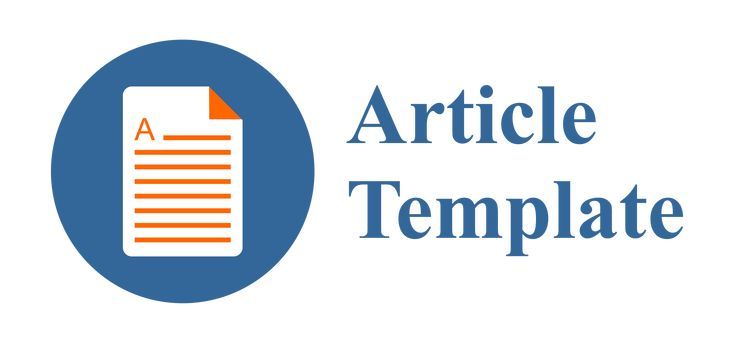Quality Evaluation of The SITASI Final Project System using Selected McCall Software Quality Factors
DOI:
https://doi.org/10.29408/edumatic.v9i2.30675Keywords:
final project management, mccall model, sitasi system, software quality evaluation, university information systemAbstract
The Final Project Information System (SITASI) was developed to support academic administration processes. However, performance and usability issues continue to hinder its effectiveness, particularly during peak usage. This study aims to evaluate the quality of SITASI using the McCall Software Quality Model by focusing on five relevant operational factors: correctness, reliability, efficiency, integrity, and usability. The research employed a descriptive quantitative approach by distributing a validated user perception questionnaire to 72 students with active experience using SITASI. The instrument was tested for validity and reliability, with data analyzed using descriptive statistical techniques to evaluate the quality of the SITASI system. The results show that usability scored the highest at 86%, followed by correctness at 67.6%, reliability at 64.2%, integrity at 50.8%, and efficiency at 43.5%. These findings reveal strong user interface performance but expose technical limitations in speed and data security. The study concludes that while SITASI performs well in terms of usability, it requires substantial improvements in system responsiveness and integrity features. The results offer a structured evaluation of software quality and provide practical recommendations for developers to optimize performance and strengthen data protection. This study contributes a replicable framework for evaluating academic information systems in higher education environments.
References
Andini, M., & Fitriana, G. F. (2022). Analisis Kualitas Aplikasi Simpel Pol Menggunakan Metode McCall. JURIKOM (Jurnal Riset Komputer), 9(3), 680–687. https://doi.org/10.30865/jurikom.v9i3.4192
Asfa, H., & Gandomani, T. J. (2023). Software quality model based on development team characteristics. International Journal of Electrical and Computer Engineering, 13(1), 859–871. https://doi.org/10.11591/ijece.v13i1.pp859-871
Farisi, A., & Saputra, H. (2022). Analisis Kualitas Sistem Informasi Menggunakan Metode McCall: Studi Kasus SPON MDP. Techno.Com, 21(2), 237–248. https://doi.org/10.33633/tc.v21i2.5970
Farisi, A., & Teguh, R. (2024). Analisis Metode Pengukuran Kualitas Perangkat Lunak: Sebuah Tinjauan Literatur Sistematis. Jurnal Sains Teknologi Dan Sistem Informasi, 4(1), 10–16. https://doi.org/10.54259/satesi.v4i1.2551
Fergo, A. G., & Ratnasari, C. I. (2023). Evaluation of Octo Mobile User Experience using the System Usability Scale Method. Edumatic : Jurnal Pendidikan Informatika, 7(1), 151–159. https://doi.org/10.29408/edumatic.v7i1.17495
Fitria, N., Nasution, F. H., & Aldimas, A. (2024). Perancangan Sistem Informasi Pengelolaan Judul Proposal Tugas Akhir Mahasiswa Program Studi Sistem Informasi Berbasis Web. Jurnal Ilmu Komputer Dan Sistem Informasi (JIKOMSI), 7(1), 55–65. https://doi.org/10.55338/jikomsi.v7i1.2501
Fronita, M. (2023). Analisis Celah Keamanan Website Sitasi Menggunakan Vulnerability Assessment. Jurnal Ilmiah Rekayasa Dan Manajemen Sistem Informasi, 9(1), 1–7. https://doi.org/10.24014/rmsi.v9i1.21823
Khairul, K. Z., Rianti, E., Yenila, F., & Pradana, T. (2023). Analisis Kualitas Sistem Informasi Absensi Karyawan dengan Metode McCall. Jurnal KomtekInfo, 10, 93–100. https://doi.org/10.35134/komtekinfo.v10i3.417
MaySarah, Saputra, E., Monalisa, S., & Ahsyar, T. K. (2024). Analisis Kualitas Layanan Website Menggunakan Metode Webqual 4.0 Dan Interface Performance Analysis Pada Dinas Xyz. KESATRIA: Jurnal Penerapan Sistem Informasi (Komputer & Manajemen), 5, 1201–1214.
Mitha, I. M. A. P., Pradnyana, I. M. A., & Indradewi, I. G. A. A. D. (2024). Evaluasi Kualitas Sistem Informasi Karya Akhir Menggunakan Metode McCall: Studi Kasus di Universitas Pendidikan Ganesha. Techno.Com, 23(4), 935. https://doi.org/10.62411/tc.v23i4.11625
Nocera, F. Di, Tempestini, G., & Orsini, M. (2023). Usable Security : A Systematic Literature Review. Information, 14(12), 1-19. https://doi.org/10.3390/info14120641
Pratama, A., Larasati, A. S., & Wulansari, A. (2021). Analisis Kualitas Website Sistem Langitan Umaha Dengan Webqual 4.0 dan Importance Performance Analysis. Journal of Information Systems and Informatics, 3(3), 519–533. https://doi.org/10.51519/journalisi.v3i3.172
Rahman, B., & Ningsi, S. A. (2022). Sistem Informasi Monitoring Skripsi Mahasiswa Berbasis Website. Simtek : Jurnal Sistem Informasi Dan Teknik Komputer, 7(2), 166–170. https://doi.org/10.51876/simtek.v7i2.152
Ramadhan, M. T., Gunawan, Y., Manaf, K., Purwanto, H., Perdana, R. S., & Subaeki, B. (2024). Testing The Authentication Platform System Using The Mccall Model. CoreID Journal, 2(1), 20–26. https://doi.org/10.60005/coreid.v2i1.26
Ramulu, K., & Murhtyr, B. V. R. (2020). Importance of Software Quality Models in Software Engineering. International Journal of Engineering Technologies and Management Research, 5(3), 200–218. https://doi.org/10.29121/ijetmr.v5.i3.2018.192
Saputra, E., Monalisa, S., & Ahsyar, T. K. (2024). Analisis Kualitas Layanan Website Menggunakan Metode Webqual 4 . 0 Dan Interface Performance Analysis Pada Dinas Xyz. KESATRIA: Jurnal Penerapan Sistem Informasi (Komputer & Manajemen), 5(3), 1201–1214.
Wahyuni, I., Affan, A., & Sutaryana, B. M. (2023). Analisis Pengalaman Pengguna Sistem Informasi Puskesmas Menggunakan Metode User Experience Questionnaire (UEQ): Studi Kasus di Kabupaten Bantul. Jurnal Informasi Kesehatan Indonesia, 9(2), 1–11. https://doi.org/10.31290/jiki.v9i2.3789
Yusuf, B., Insani, F., Affandes, M., Yanto, N., & Darmizal, T. (2023). Analisis Tingkat Kualitas E-learning menggunakan Metode Webqual 4.0 dan Importance Performance Analysis (IPA). Edumatic: Jurnal Pendidikan Informatika, 7(1), 108-114. https://doi.org/10.29408/edumatic.v7i1.14059
Zieglmeier, V., & Lehene, A. M. (2021). Designing Trustworthy User Interfaces. ACM International Conference Proceeding Series, 1(1), 182–189. https://doi.org/10.1145/3520495.3520525
Zulfa, A. A., Ibrahim, T., & Arifudin, O. (2025). Peran Sistem Informasi Akademik Berbasis Web dalam Upaya Meningkatkan Efektivitas dan Efisiensi Pengelolaan Akademik di Perguruan Tinggi. Jurnal Tahsinia, 6(1), 115–134.
Downloads
Published
How to Cite
Issue
Section
License
Copyright (c) 2025 Suci Nur Adillah, Tengku Khairil Ahsyar, Syaifullah Syaifullah, Anofrizen Anofrizen, Arif Marsal

This work is licensed under a Creative Commons Attribution-ShareAlike 4.0 International License.
All articles in this journal are the sole responsibility of the authors. Edumatic: Jurnal Pendidikan Informatika can be accessed free of charge, in accordance with the Creative Commons license used.

This work is licensed under a Lisensi a Creative Commons Attribution-ShareAlike 4.0 International License.




